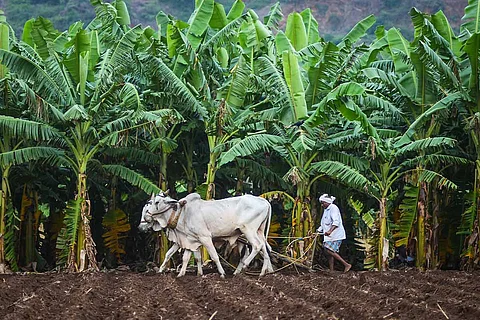

The Government of India enacted the Farmers' Produce Trade and Commerce (Promotion and Facilitation) 2020 and the Farmers (Empowerment and Protection) Agreement of Price Assurance and Farm Services Act 2020 and touted them as much-needed agricultural reforms in India. However, both agriculture and marketing of agricultural products are state subjects governed by state government laws. Therefore, the enactments encroach upon the powers of state governments and are also against the spirit of cooperative federalism.
These two legislations are not in conformity with the provisions of the Panchayats (Extension to the Scheduled Areas) Act, 1996, which extended the provisions IX of the Constitution of India to Scheduled Areas with certain modifications. The PESA Act, 1996 empowers a Gram Sabha or Gram Panchayat, as the case may be, to manage village markets by whatever name they are called, in Scheduled Areas, where tribals reside.
In fact, as per the AP PESA Rules 2011, Gram Panchayats shall act as market committees in Scheduled Areas to regulate the making, execution and enforcement or cancellation of agreements of sales, the weighment, delivery, payment and all other matters relating to the marketing of agricultural produce, Non Timber Forest Produce (NTFP), livestock or products of livestock and all matters ancillary. Therefore, the role of the Market Committee headed by the Sarpanch of Gram Panchayat is undermined and disregarded by the new laws.
The PESA Rules provide for the settlement of all disputes between the seller and the buyer and others arising out of any kind of transaction connected with the marketing of notified agricultural produce.
Contrary to these laws, the Farmers' Produce Trade and Commerce (Promotion and Facilitation) Act 2020 enables the farmers to sell their agricultural produce and do marketing outside of the purview and regulation of the Village Market Committees that was envisaged in Scheduled Areas. In fact, these market committees were implemented to act as a protective shield around the farmers, to help them from corporate greed and market manipulation by vested interests or traders.
The Trade and Commerce Act 2020 will open up the gate for free intra- and inter-state trade without any barriers and also provides a framework for e-trading of agricultural produce. On the other hand, the Act does not provide anything that guarantees minimum support prices and assured procurement of agricultural produce from the farmers by outside traders. The law completely dismantles the role of local marketing committees and also restrains the state governments from intervening in the procurement of agricultural produce.
The other central legislation — Farmers (Empowerment and Protection) Agreement of Price Assurance and Farm Services Act 2020 — defines a ‘farmer’ as an individual engaged in the production of farm produce by self or by hired labour or otherwise. While this includes farmer producer organisations, it excludes the labourer/tiller/share cropper etc whose hard labour is involved in irrigation and production.
The law further defines "farming agreement" as a written agreement entered into between the parties of a farmer and a sponsor or both with any third party, prior to the production, agreeing to purchase farming produce and provide farm services. This means that the tribals, who have little legal knowledge about the implications of written farming agreements, may be subjected to exploitation and loss. The predetermined quality clause in the farming agreement could give space to traders to refuse the yield or pressurise for renegotiation of prices on flimsy grounds. Unscrupulous traders could potentially take advantage of differentially vulnerable tribal sections or gullible tribal farmers and cheat them.
The law also permits third-party qualified assayers to monitor and certify the quality, grade etc of farm produces mentioned in the farming agreements. But when looking at this, one cannot rule out the possibility of these assayers giving biased or favourable reports that benefit the traders and adversely affect the interest of the farming community, as there is no provision for government assayers.
Where the farming agreement is silent about the settlement of disputes of the parties through a conciliation process or where the parties fail to settle their disputes within 30 days, the aggrieved party can approach the Sub Divisional Magistrate for redressal of their grievance. Moreover, the jurisdiction of civil courts is excluded from the purview of the disputes arising out of the farming agreements. Therefore the government is allowing the poor, illiterate, and poverty stricken farmers to compete with corporate farmers and big traders as a principle of 'laissez faire' which will be an unfair battle.
The parties involved in profit-oriented farming agreements may also overlook the impact on the environment due to overuse of land resources in order to maintain the grade/standards/quality etc of the farm produce. Once the land loses its fertility, the farmer will lose his only source of income. There is no compliance mechanism under the Farmers Services Act 2020 to monitor the standards set for any farm produce.
The Scheduled Areas are already experiencing land pollution and decline or loss of farm income due to excess use of fertilisers for commercial crops to get more yields and also maintain the standards of farm produces with the active intervention of traders. The increased intervention by traders will affect the choice of the farmers to grow their sustainable food crops.
The writer is a lawyer and an activist working for tribals rights for more than three decades. Views expressed are the author’s own.